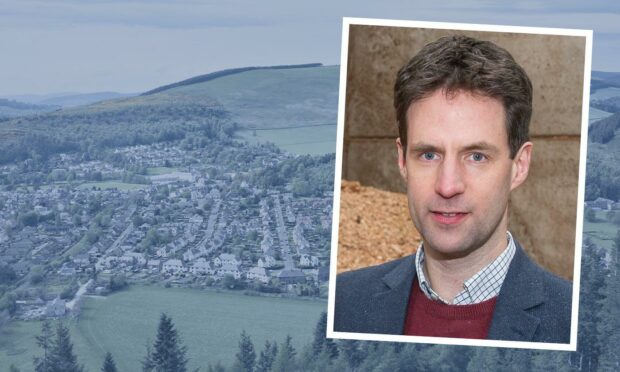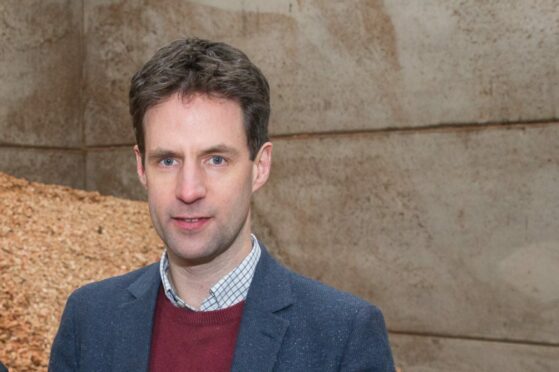Developers should be offered reliefs to help get new homes built on long-standing vacant land and bring derelict properties back to life, according to proposals for a tax overhaul in Scotland.
The Scottish Land Commission set out a five-point plan it hopes would regenerate town centres, make the switch to renewable energy easier and create more diversity in ownership.
In Scotland, just 12% of all public sector revenue across both reserved and devolved taxes are raised through land and property taxes.
Across the UK, around 50% of wealth is tied up in land and property – but this only makes up about 10% of the total tax base.
In their report, authors say they want to start a national conversation.
They recommend:
- Putting land ownership and value details on a central database.
- Business rate and council tax relief for new property on long-standing vacant sites.
- Use taxation to help the land market adapt from fossil fuels reliance.
- A “productive balance” of public and private benefit from future carbon values.
- Income tax relief to support letting of agricultural land.
Discussing changes to taxation often attracts passionate debate and strong views.
Hamish Trench, Scottish Land Commission
Vacant land and derelict properties have plagued Scotland’s landscape for years.
The report says the Scottish Government could use land and buildings transaction tax to support more diverse land ownership.
It highlights the environmental risks of high-value land associated with carbon.
There is growing interest by companies and individuals to buy land to offset their carbon use, or take advantage of government grants for tree-planting and other initiatives to respond to the climate emergency.
The commission’s report also suggests offering income tax relief to encourage more letting of agricultural land – something Westminster would need to consider.
‘National conversation’ on tax
Hamish Trench, chief executive of the Scottish Land Commission, says a “national conversation” needs to happen if the way Scotland’s land is taxed is to improve.
He said: “Land is our most valuable asset and Scotland has scope to tax land in ways that better support the Scottish Government’s policy priorities, but this needs to be considered in a careful way that acknowledges the complexity and devolved powers.
“This report sets out steps that can be taken to steadily increase the role that land value plays in taxation, as well as specific reform opportunities to tackle priorities including derelict land regeneration and a just transition.
“Tax is a potentially significant influence in delivering Scotland’s land policy objectives and we recommend an ongoing programme of reforms.
“Discussing changes to taxation often attracts passionate debate and strong views – our international research has shown how important direct public engagement is in discussion and consideration of the options for changes in land taxation.
“That is why we also advise that a national conversation needs to happen to build consensus on the options for taxing land and making the most of Scotland’s land.”
A spokesman for the Scottish Government said: “Scotland’s land is one of our most important natural assets and we want to make sure it supports local communities and our national outcomes including a just transition to net zero.
“We look forward to working closely at the Scottish Land Commission’s recommendations and will assess them as part of our wider approach to tax policy.”

